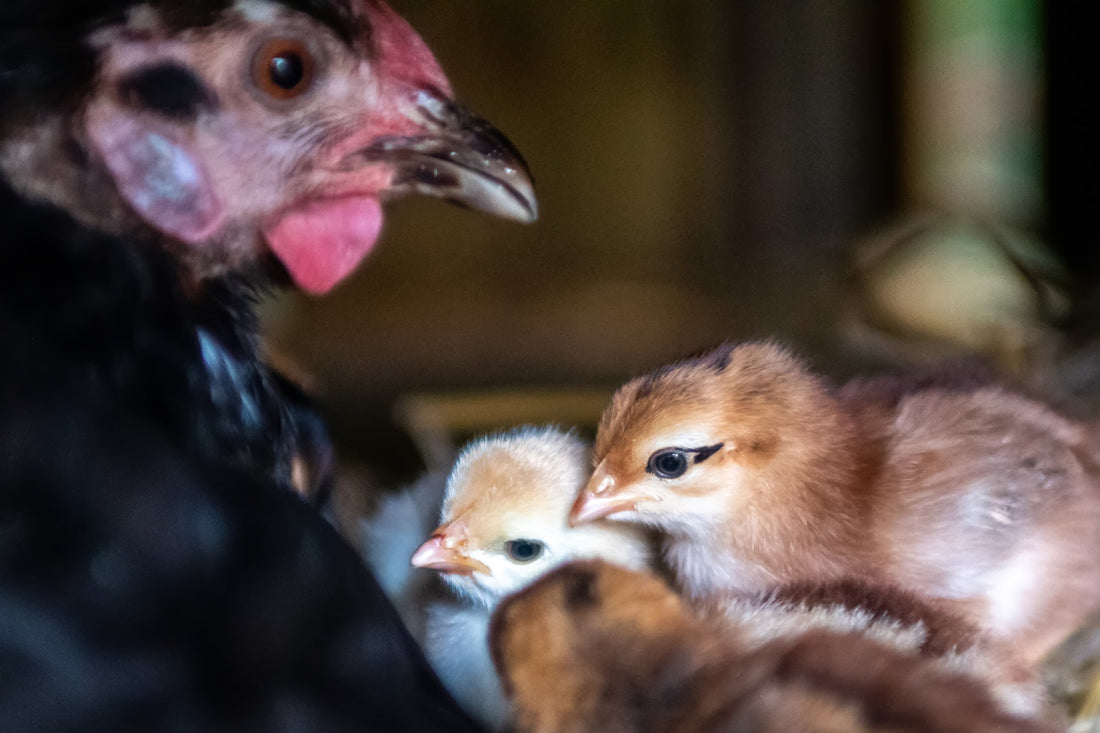In the bustling world of the barnyard, where the pecking order dictates daily life, there lies a tale of courage, love, and feathers. This is the story of the mother hen, the unsung hero of the coop, armed with nothing but her wits, her beak, and an indomitable spirit to protect her brood. Let's embark on an exploration of the protective instincts of mother hens, a journey that reveals not just their fierce determination but also the depth of their avian affection.
The Maternal Marvel: Understanding Mother Hens
More Than Just Egg Layers
The Birth of a Mother: When a hen decides it's time to hatch a clutch of eggs, she transitions from being just another member of the flock to becoming a dedicated protector. This shift is not merely physical but also psychological, driven by a deep-rooted instinct to nurture and defend.
The Warmth of a Mother: The first act of protection begins with the simple yet vital act of keeping the eggs warm. A mother hen will rarely leave her nest, ensuring her eggs are kept at the perfect temperature, come rain or shine.
The Protective Arsenal: Tools of the Trade
A Hen's Defense Mechanisms
The Warning Cluck: Mother hens have a special set of vocalizations reserved for alerting their chicks to potential dangers. From the subtle warning cluck to the urgent alarm call, each sound is a signal that triggers an instinctive response in her chicks to take cover.
The Feathery Shield: In the face of danger, a mother hen becomes a shield for her chicks, puffing up her feathers and spreading her wings to make herself appear larger and fend off any threats.
The Foes: What Mother Hens Are Up Against
From Predators to Peril
Natural Predators: In the wild and even in the farmyard, mother hens have to protect their brood from a variety of predators, including foxes, hawks, and raccoons. Each predator presents a different challenge, but the mother hen faces them with unwavering courage.
Environmental Hazards: Beyond predators, mother hens also safeguard their chicks from environmental hazards, whether it’s extreme weather or navigating the terrain of the barnyard to find food and water.
The Brood: Raising the Next Generation
Lessons in Survival
Teaching and Foraging: Mother hens teach their chicks essential skills for survival, from foraging for food to recognizing and responding to the calls of danger. These lessons are crucial for the chicks as they grow and become independent.
Social Integration: A mother hen also plays a pivotal role in introducing her chicks to the flock, ensuring they are accepted and find their place within the social hierarchy of the barnyard.
The Bond: Beyond Instinct
The relationship between a mother hen and her chicks is a fascinating tapestry woven with threads of instinct, learning, and emotional connection. While their protective instincts are formidable, the bond they share transcends mere survival, touching the realms of genuine affection and lifelong relationships. Let’s explore further the nuances of this special bond that highlights the emotional intelligence of chickens.
Emotional Intelligence in Feathers
Empathetic Responses: Research has illuminated the capacity of mother hens to exhibit empathy towards their chicks. When a chick is in distress, not only does the mother hen react with protective behaviors, but physiological signs suggest she experiences stress related to her chick's discomfort. This ability to share in the emotional states of her brood showcases a level of emotional intelligence that enriches the bond they share.
Comfort and Care: The care a mother hen provides goes beyond the physical. She offers comfort, using soft clucks to soothe and gather her chicks. Observations show that chicks respond to their mother’s presence with visible signs of relaxation and contentment, a testament to the emotional security she provides.
Teaching and Learning: The Foundations of the Flock
Life Skills: The lessons mother hens impart to their chicks cover essential survival skills, such as identifying food sources and recognizing danger. However, these teaching moments also serve as bonding experiences, strengthening the connection between mother and chick through shared activities and communication.
Social Integration: Introducing her chicks to the flock, a mother hen facilitates their integration into the social structure of the coop. This not only ensures their acceptance within the community but also teaches them about social dynamics and their place within the group. The mother hen's guidance during this critical period lays the foundation for her chicks' future interactions and status within the flock.
The Lingering Connection: Bonds That Last
Recognition and Reunion: Even after chicks grow up and the immediate dependency on their mother wanes, the recognition between them remains. Anecdotal evidence suggests that chickens can recognize their family members, including their mother, long after they've matured. Reunions can be marked by specific vocalizations and behaviors that indicate recognition and familiarity.
Lasting Affection: The bond formed in the early days of a chick's life can have lasting effects on its behavior and social preferences. Grown chickens that were raised under the wing of a caring mother hen often exhibit higher levels of confidence and social skills, attributes that can be traced back to the security and lessons provided by their mother. The protective instincts of mother hens are a testament to the complexity and depth of avian emotions and behaviors. Far from being mere barnyard animals, chickens exhibit a range of protective and nurturing behaviors that rival those of more traditionally celebrated maternal figures in the animal kingdom. So, the next time you see a hen with her brood, take a moment to appreciate the fierce determination and loving care that defines her world. In the heart of every mother hen beats the courage of a lioness, all for the love of her chicks. 🐔💖🐣



